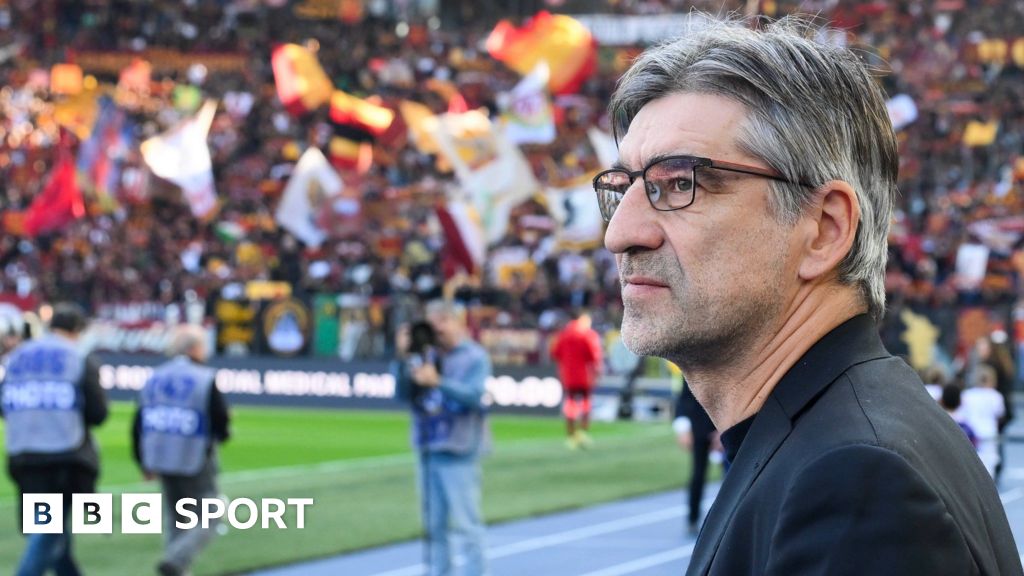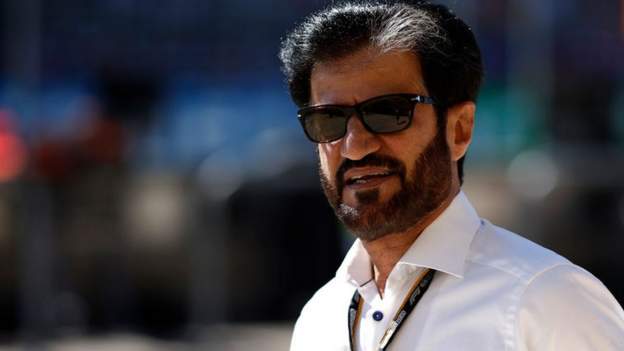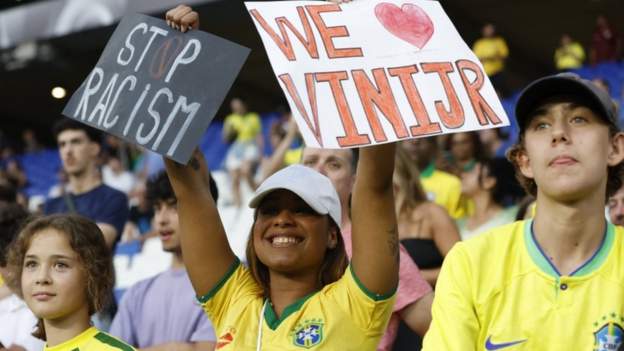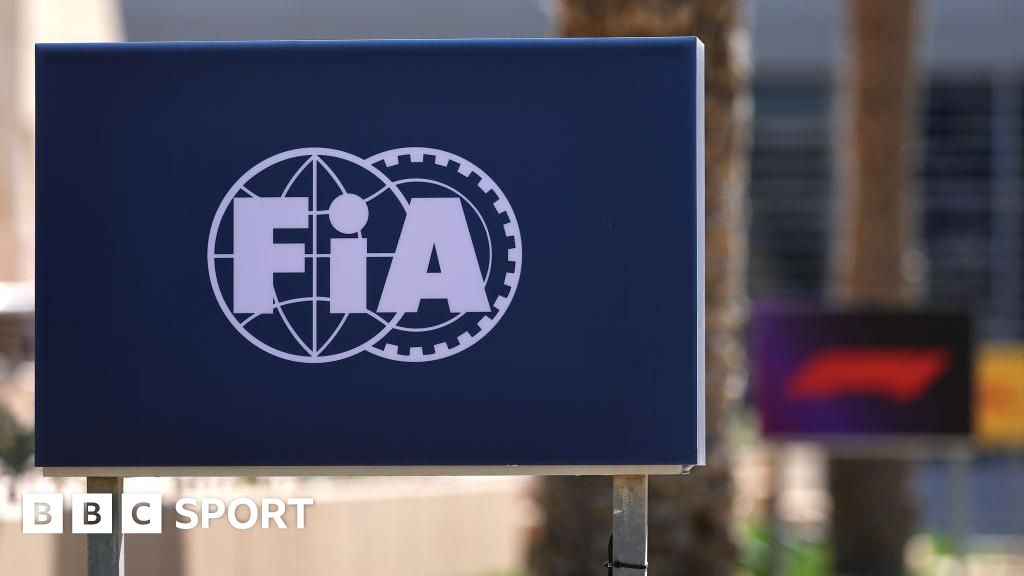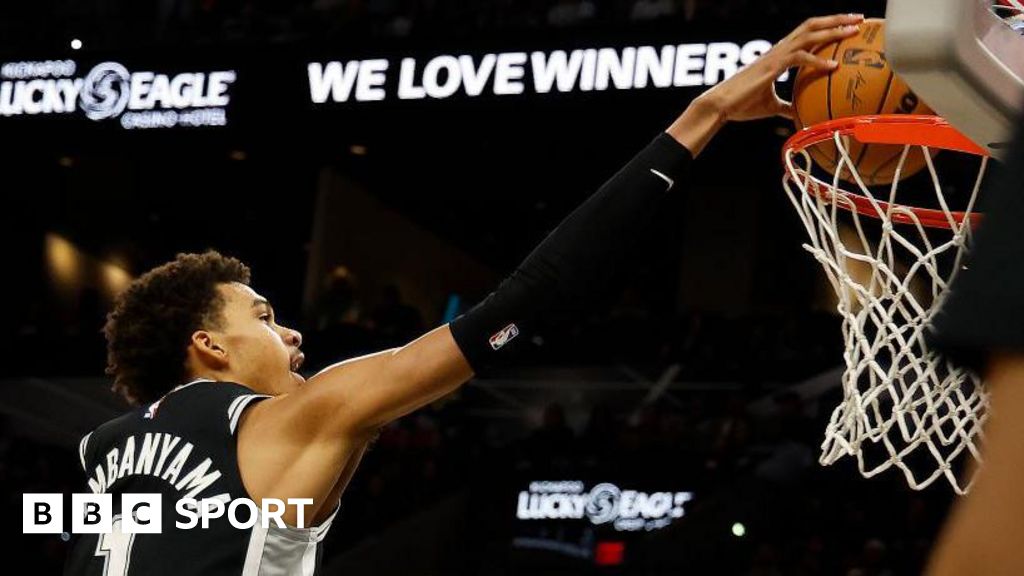There is a storm brewing in Formula 1.
But this is just the medium through which it is being played out. In reality, it’s about the usual – power, money and influence.
And while the debate could have been handled behind closed doors, the governing body’s president Mohammed Ben Sulaymen has gone public.
In doing so, he has provided a window into the latest in a series of disagreements between the FIA, commercial rights holder F1 and the teams that have marked his tenure since he took office at the end of 2021.
What is the dispute about?
At its core, the row revolves around the desire of US racing legend Michael Andretti to enter F1 with his own team.
First, the 60-year-old tried to buy the Sauber team last year. When that fell through, Andretti announced plans to set up his own team. That, too, was met with reluctance from F1’s power brokers, who were not convinced the project was solid enough to add the required value to a sport that is experiencing a significant growth in global interest, especially in the USA.
Andretti was effectively told: “Go away and find a car manufacturer to support your bid, and we’ll look at it again.”
So he did. He landed a big one – American icon General Motors, formerly the world’s biggest car company and still one of the largest, announced last week that it would join forces with Andretti using its luxury brand Cadillac.
Andretti now feels he has done enough, and the FIA also sounded convinced, saying in a statement last week that it was “particularly pleasing to have interest from two iconic brands.”
But F1 was lukewarm. It talked about the “great interest in the F1 project at this time, with a number of conversations continuing that are not as visible as others”, adding: “Any new entrant request requires the agreement of both F1 and the FIA.”
On Sunday, Ben Sulaymen put out another statement on Twitter.
“It is surprising that there has been some adverse reaction to the Cadillac and Andretti Global news,” he wrote.
“We should be encouraging prospective entries from global manufacturers like GM and thoroughbred racers like Andretti and others.”
The odd thing about this was that there had not been any “adverse reaction” to the Andretti news – at least not publicly.
Insiders say Ben Sulayem’s tweet was likely in response to the cool response to the Andretti announcement from F1, and opposition to the bid behind closed doors from existing teams, who don’t have an official say in the process but certainly have a powerful voice.
An FIA spokesperson said on Monday: “The FIA has not made any indication or comment on the potential success or otherwise of any organisations who express their interest in entering the championship.”
They added that the process would “follow strict FIA protocol and take several months.”
What are the concerns about Andretti?
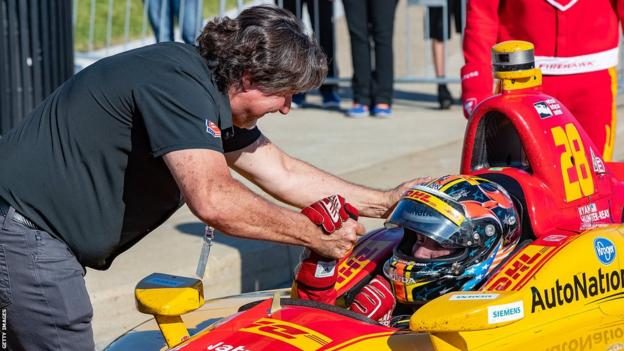
On the face of it, the Andretti bid looks attractive.
Andretti is a big name, steeped in motorsport heritage, with a successful record in other categories such as IndyCar and the FIA’s own all-electric Formula E series, and reputed to have a significant amount of money behind him.
GM is a major American company and Cadillac the sort of high-end brand that seems to fit nicely with F1’s image.
But many stakeholders in F1 have concerns as to whether, if a new team is to enter F1, this is the right one.
The key phrase that keeps coming up is whether Andretti would “add value” to F1? This is about competitiveness and investment.
Firstly, has Andretti really understood what it will take to run a serious F1 team, people wonder?
Within F1, there is a general sense that many of those racing in America in categories where teams buy cars off the shelf and run them with fairly small-scale operations don’t quite grasp just how high the level is in F1, how complex the task.
Andretti is said to have told people his aim is to enter F1 in 2025, but a number of existing teams don’t think that is even close to realistic.
They point out that they already have the basics of 2025 cars sketched out, while Andretti also has to scale up a factory, and employ 600 or so people by then.
His decision to base the team in America rather than Europe has also raised eyebrows, even if Andretti is planning what he describes as a European “satellite shop” that will deal with F1 and other categories in which the company is racing.
Andretti says his new facility in Fishers, Indiana, will be “one of the most advanced racing facilities in the world when it’s completed”.
But an existing F1 team boss described the plan to base the team in the US as “insane” and suggested that Andretti appeared not to have learned the lessons of his own brief flirtation with F1 as a driver.
Andretti abandoned his career as a front-runner in IndyCar – he was champion in 1991 and one of its most successful ever drivers – to race for McLaren in 1993 as Ayrton Senna’s team-mate, but was sacked three races before the end of the season because of a lack of competitiveness.
At the time, his decision to commute from the US rather than base himself in Europe was regarded as one of the biggest stumbling blocks to success for a man whose ability was not in question.
An existing team – Haas – also have a US HQ, but their car is designed between their satellite base in the UK, and a team embedded in the Ferrari factory in Italy.
Andretti insists his plan is in good shape.
“We’ve done a lot of hiring,” he said last week. “We have quite a few people already working for us. We have hired the main engineers. So yes, we’re very much down the road on that. We have our technical director already hired; we’ll announce that down the road as well.”
There is also the way Andretti has handled himself in his dealings with F1.
Andretti turned up at the Miami Grand Prix last May and went round all the team principals asking them to sign a document saying they agreed to his entry to F1.
Only Alpine – whose parent company Renault have agreed to sell Andretti an engine – and McLaren, run by Andretti’s long-time friend and occasional business partner Zak Brown, did so.
One senior figure describes this strategy as “naive.” And it did not go down well with F1 president Stefano Domenicali, who is said to have pointed out to Andretti that this was not the way people went about things in F1, and not to try to bully him into supporting his bid.
What about Cadillac?
To many in F1, Cadillac’s involvement does not look like a genuine, committed manufacturer entry.
GM president Mark Reuss insisted at the announcement last week that the company’s “vast engineering resources will bring proven success and invaluable contributions to this partnership”.
Andretti added: “The capabilities that GM has are on the level with any Formula 1 team out there. That’s going to help us get up and running even quicker.”
But it will take more than that to convince F1 people who have heard that sort of talk from car manufacturers before, only for results to fail to match the confidence and ambition. Jaguar and Toyota are classic examples from the 2000s.
Insiders point out that, at least initially, GM will just put Cadillac’s name to a car powered by a Renault engine.
In that sense, some see it as similar to Alfa Romeo’s title sponsorship deal with Sauber, rather than a serious assault by what is known as an OEM (original equipment manufacturer) on F1.
The appeal to Cadillac of paying to have its name promoted globally by F1 is obvious. It’s a relatively cheap and easy way to gain significant publicity for the brand.
But the idea that a rival manufacturer could benefit in that way when the likes of Mercedes and Ferrari are pouring hundreds of millions a year into F1 is less palatable to those already in the sport.
And this at a time when Alfa’s deal – deemed when it happened as acceptable as the brand is part of the Ferrari family – is entering its final year because of Audi’s takeover of Sauber ahead of its formal entry in 2026.
Show them the money
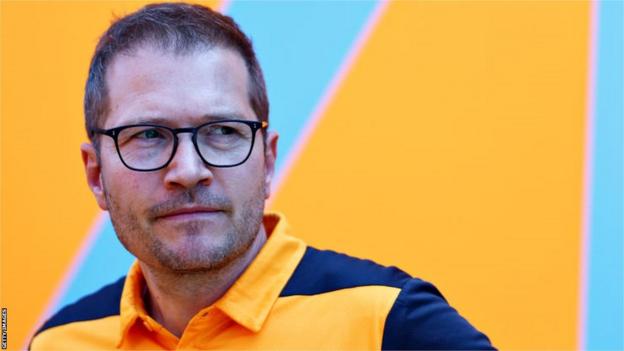
The latest F1 contracts, agreed a few years ago, dictate that any newcomer has to pay a $200m anti-dilution fee, to be distributed among the existing teams to offset the drop in income of the prize fund being split between more than 10 competitors.
But as interest in F1 has increased in recent years, team bosses are now asking whether $200m is enough.
One senior insider pointed out that $200m effectively compensates the other teams for just over two years’ loss of prize money, and suggested that a figure closer to $600-700m – representing more like five years – would be more appropriate.
Teams are also arguing that $200m significantly undervalues an F1 entry spot – and point to the recent establishment of a new franchise in the North American ice hockey league, the NHL, which cost a group from Seattle a $650m ‘expansion fee’, another name for a dilution fee.
Who are Andretti’s rivals for an F1 place?
For F1, the FIA and the teams, this is not simply a question of whether they want Andretti in F1, because they are not the only prospective new entrant.
Last year, the Volkswagen Group announced that both its Porsche and Audi brands were planning to enter F1.
Audi’s entry is well under way at Sauber.
But while Porsche’s attempts to link up as engine partner with Red Bull eventually collapsed, its interest is not dead, and it is still exploring ways it could enter F1.
The other big name in the picture is Ford – GM’s biggest rival in America.
Senior sources say it is in talks with Red Bull with a view to a partnership similar to Porsche’s original plan, and could later expand into its own team entry.
With Porsche and Ford in the picture, the Andretti bid is less attractive to some than it might appear at first sight.
There is also a project known as Panthera Team Asia, which says it is ready to enter the expressions of interest process, but is likely to be some way down the wanted list.
What is going on between F1 and the FIA?
Ben Sulayem’s public pronouncements have led to questions.
Why, senior figures wonder, is he expressing such vocal support for Andretti when the position of the FIA is to be an independent arbiter in any new team admissions process?
Why is he apparently publicly questioning F1, with which the FIA is supposed to work in partnership?
And why is he putting out these pronouncements from his private Twitter account, rather than formally through the FIA’s communications department, an approach one team boss described as “a bit peculiar”.
Ben Sulayem insisted in comments made at the Dakar Rally on Monday that he was “opening the door, not approving” Andretti’s bid, adding: “There is a lot of process and due diligence to be done first. The governance is there. We want them to succeed, and I’ve no doubt that FOM (F1 Management) and Liberty would like to see that also.”
He added: “If you want to maintain the sustainability of the sport you have to open it up to the rest of the manufacturers.
“We are allowed to have 12 teams on the grid, and to have a big company like GM, which is one of the top five in the world, we should be encouraging them to come to F1.”
Within F1, this whole situation is being viewed through the prism of what has been a tense relationship between the FIA, F1 and the teams since Ben Sulaymen took over.
This has been characterised by a series of difficulties – such as a clampdown on driver jewellery, dissatisfaction over the FIA’s handling of safety matter, and the political dispute over the number of ‘sprint’ race weekends this year.
Many senior figures believe Ben Sulayem is attempting to demonstrate his power and influence, even in areas where technically he should not be meddling.
Just five months into his presidency last year, F1 bosses were openly telling teams that they were looking at ways to remove the FIA from the day-to-day operations of the sport.
That calmed down for a while through the summer – not least because it’s a difficult thing to do, as the FIA owns the rights to the F1 world championship and F1 merely leases them – but the concerns have never fully gone away.
As one team boss said: “All that’s been going on, and it’s getting worse.”
Andretti, it seems, is just the latest person to be drawn into a wider power struggle at the heart of F1.











